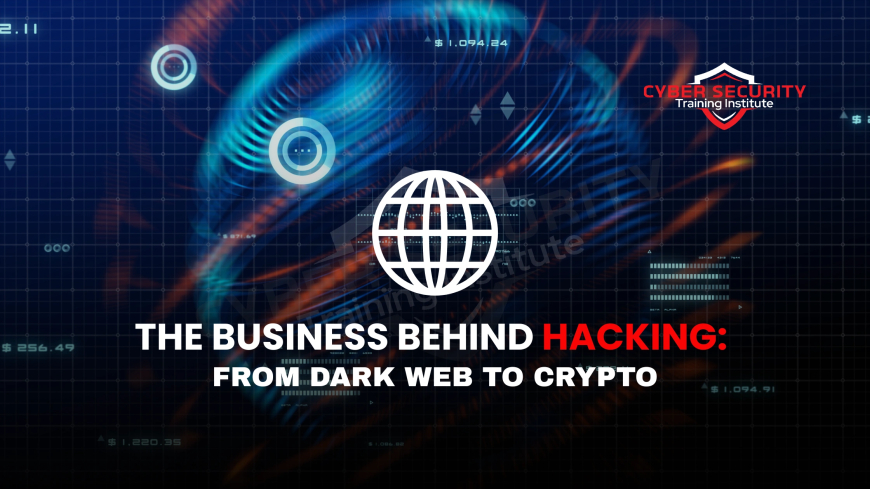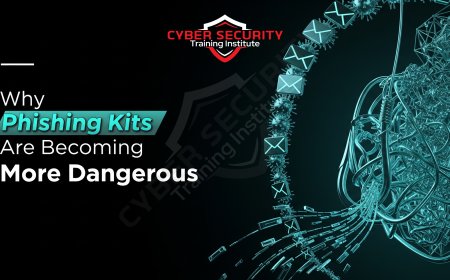Inside the Hacker Economy | From Dark Web Jobs to Crypto Payments
In a world where technology evolves faster than ever, a hidden economy thrives in the shadows of the internet. Known as the hacker economy, this underground network involves everything from skilled coders offering their services on the dark web to transactions conducted in cryptocurrencies like Bitcoin. It’s a fascinating, complex, and sometimes unsettling world that operates beyond the reach of traditional systems. Whether you’re new to the concept or curious about how it works, this blog post will take you inside the hacker economy, exploring its key components, how it functions, and what it means for the future of cybersecurity.

Table of Contents
- What Is the Hacker Economy?
- The Role of the Dark Web
- Jobs in the Hacker Economy
- Cryptocurrency: The Backbone of Payments
- Tools and Services in the Hacker Economy
- Risks and Challenges
- The Future of the Hacker Economy
- Conclusion
- Frequently Asked Questions
What Is the Hacker Economy?
The hacker economy refers to an underground marketplace where individuals with technical skills—often called hackers—offer services, tools, or stolen data for profit. Unlike the legal tech industry, this economy operates largely on the dark web, a hidden part of the internet not indexed by standard search engines like Google. The hacker economy is driven by supply and demand, much like any other market, but its activities often skirt or outright break the law.
Participants range from lone coders to organized cybercrime groups. They offer services like hacking into systems, selling stolen data (like credit card numbers or personal information), or creating malicious software (malware). Payments are typically made in cryptocurrencies to maintain anonymity. This economy thrives because of the internet’s global reach, the difficulty of tracking digital transactions, and the growing demand for illicit digital services.
The Role of the Dark Web
The dark web is the backbone of the hacker economy. Accessible only through special software like Tor, it provides a level of anonymity that makes it ideal for illegal activities. Think of it as a hidden marketplace where buyers and sellers can connect without revealing their identities.
Dark web marketplaces function similarly to e-commerce platforms like eBay, but instead of selling clothes or electronics, they offer hacking tools, stolen data, or even “hacking-as-a-service.” These markets use escrow systems to ensure trust between anonymous parties, and they often have user ratings to build credibility. For example, a seller with a high rating might be trusted to deliver a working hacking tool, while a buyer might need a good reputation to access premium services.
Jobs in the Hacker Economy
Just like any economy, the hacker economy has a job market. Skilled individuals can find “gigs” that range from ethical to outright illegal. Here’s a look at some common roles:
- Penetration Testers: Ethical hackers hired to test a company’s security by attempting to break into their systems legally.
- Malware Developers: Coders who create viruses, ransomware, or spyware to harm or exploit systems.
- Data Brokers: Individuals who sell stolen data, such as login credentials or financial information.
- Social Engineers: Hackers who manipulate people into revealing sensitive information, often through phishing emails or phone scams.
- Botnet Operators: People who control networks of compromised devices to launch attacks or send spam.
Below is a table summarizing some of these roles and their typical activities:
| Role | Description | Legality |
|---|---|---|
| Penetration Tester | Tests security systems with permission to identify weaknesses. | Legal |
| Malware Developer | Creates malicious software to steal data or disrupt systems. | Illegal |
| Data Broker | Sells stolen data like credit card numbers or passwords. | Illegal |
| Social Engineer | Tricks people into revealing sensitive information. | Illegal |
Cryptocurrency: The Backbone of Payments
Cryptocurrencies like Bitcoin, Monero, and Ethereum are the lifeblood of the hacker economy. Why? They offer a level of anonymity that traditional banking can’t match. Transactions are recorded on a public ledger called a blockchain, but they don’t directly link to real-world identities. This makes it hard for law enforcement to trace payments.
Monero, in particular, is popular because it uses advanced encryption to hide transaction details, unlike Bitcoin, which is more traceable. Hackers often demand payment in crypto for services like ransomware attacks, where they lock a victim’s data and demand a ransom to unlock it. For example, a hacker might demand 1 Bitcoin (worth thousands of dollars) to restore access to a company’s files.
However, cryptocurrencies aren’t foolproof. Law enforcement agencies have gotten better at tracking blockchain transactions, and some hackers have been caught when they try to convert their crypto into cash through exchanges that require identity verification.
Tools and Services in the Hacker Economy
The hacker economy isn’t just about people—it’s also about the tools and services they use. Here are some common ones:
- Exploit Kits: Pre-packaged software that helps hackers find and exploit vulnerabilities in systems.
- Phishing Tools: Programs that automate the creation of fake emails or websites to steal login credentials.
- Ransomware-as-a-Service (RaaS): A subscription-based model where hackers rent ransomware to others, splitting the profits.
- Credential Stuffing Tools: Software that tests stolen usernames and passwords on multiple websites to find valid logins.
These tools lower the barrier to entry, meaning even people with limited technical skills can participate in cybercrime. For example, someone with no coding experience can buy a phishing kit for a few hundred dollars and start sending scam emails.
Risks and Challenges
While the hacker economy offers opportunities for profit, it’s not without risks. For participants, the biggest threat is law enforcement. Agencies like the FBI and Interpol have dedicated cybercrime units that monitor the dark web and track cryptocurrency transactions. Hackers also face competition and scams within their own community—buyers might pay for a tool that doesn’t work, or sellers might get cheated by fake buyers.
For businesses and individuals, the hacker economy poses a constant threat. Data breaches can lead to financial loss, identity theft, or reputational damage. Companies must invest heavily in cybersecurity to protect themselves, while individuals need to be cautious about phishing scams and weak passwords.
The Future of the Hacker Economy
As technology advances, so will the hacker economy. Artificial intelligence (AI) is already being used to create smarter phishing emails and automate attacks. Quantum computing could potentially break current encryption methods, opening new opportunities for hackers. At the same time, cybersecurity is evolving to counter these threats, with companies developing AI-driven defenses and governments cracking down on crypto exchanges.
The hacker economy is a double-edged sword. On one hand, it drives innovation in cybersecurity as companies race to stay ahead of hackers. On the other, it creates a cat-and-mouse game where no one ever fully wins. The rise of decentralized finance (DeFi) and new cryptocurrencies may further fuel this underground economy, making it harder to regulate.
Conclusion
The hacker economy is a hidden but thriving world where technical skills, anonymity, and cryptocurrencies come together to create a unique marketplace. From dark web jobs to crypto payments, it operates in the shadows, challenging traditional notions of security and finance. While it offers opportunities for profit, it also poses significant risks for both participants and victims. As technology continues to evolve, understanding the hacker economy is crucial for anyone looking to navigate the digital world safely. By staying informed and cautious, we can better protect ourselves from its dangers while appreciating the complex dynamics that drive it.
Frequently Asked Questions
What is the hacker economy?
The hacker economy is an underground marketplace where hackers offer services, tools, or stolen data for profit, often on the dark web using cryptocurrencies.
What is the dark web?
The dark web is a hidden part of the internet accessible only through special software like Tor, often used for anonymous and illegal activities.
How do hackers make money?
Hackers earn money by selling stolen data, offering hacking services, creating malware, or demanding ransoms through attacks like ransomware.
Why is cryptocurrency popular in the hacker economy?
Cryptocurrencies like Bitcoin and Monero offer anonymity, making it hard for authorities to trace transactions.
What is a penetration tester?
A penetration tester is an ethical hacker hired to test a company’s security by attempting to break into their systems with permission.
What is ransomware?
Ransomware is malicious software that locks a victim’s data, with hackers demanding payment (often in crypto) to unlock it.
Can anyone access the dark web?
Yes, anyone with the right software, like Tor, can access the dark web, but navigating it safely requires caution and knowledge.
Are all hackers in the hacker economy criminals?
No, some hackers, like penetration testers, work legally to improve cybersecurity, but many activities in the hacker economy are illegal.
What is an exploit kit?
An exploit kit is a pre-packaged tool that helps hackers find and exploit vulnerabilities in systems or software.
How do hackers stay anonymous?
Hackers use tools like Tor, VPNs, and cryptocurrencies to hide their identities and locations.
What is phishing?
Phishing is a scam where hackers trick people into revealing sensitive information, like passwords, through fake emails or websites.
Can law enforcement stop the hacker economy?
Law enforcement can disrupt parts of the hacker economy, but its anonymity and global nature make it hard to eliminate completely.
What is a botnet?
A botnet is a network of compromised devices controlled by a hacker to perform tasks like sending spam or launching attacks.
How do dark web marketplaces work?
Dark web marketplaces operate like e-commerce sites, with escrow systems, user ratings, and anonymous transactions for hacking tools or services.
Is cryptocurrency completely untraceable?
No, some cryptocurrencies like Bitcoin are traceable through blockchain analysis, but others like Monero are designed for greater privacy.
What is hacking-as-a-service?
Hacking-as-a-service is when hackers offer their skills for hire, performing tasks like breaking into systems for clients.
How can I protect myself from the hacker economy?
Use strong passwords, enable two-factor authentication, avoid suspicious emails, and keep software updated to reduce risks.
What is ransomware-as-a-service (RaaS)?
RaaS is a model where hackers rent ransomware to others, often splitting the profits from successful attacks.
Will the hacker economy grow in the future?
Yes, advances in technology like AI and new cryptocurrencies are likely to fuel the growth of the hacker economy.
How can companies defend against the hacker economy?
Companies can invest in cybersecurity, conduct regular security audits, and train employees to recognize threats like phishing.
What's Your Reaction?
 Like
0
Like
0
 Dislike
0
Dislike
0
 Love
0
Love
0
 Funny
0
Funny
0
 Angry
0
Angry
0
 Sad
0
Sad
0
 Wow
0
Wow
0















